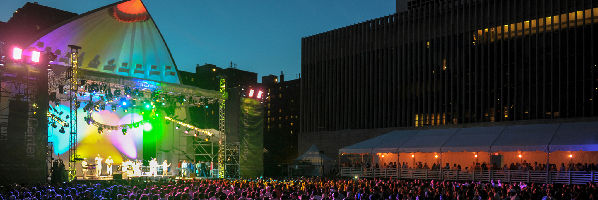
In the last post, we observed that before you enroll in a music degree/major, you should have a fairly good idea of specifically which field(s) within music you might realistically see yourself thriving in. So let’s dive in—we’ll start with considering a career in performance.
Practical considerations
Let’s be realistic here. Classical music has faced a sad decline in popularity, especially in the States. Don’t get me wrong, I’m not pessimistic about its survival. I think there will always be those who love classical music and enjoy attending concerts. But the audience pool is not huge, and so the jobs are relatively few. Couple that with the consideration that the leading conservatories are churning out reams of fantastically talented, highly accomplished artists every year. The market is saturated on a number of fronts.
You have to want it
I say that not to categorically discourage you from pursuing a career in performance. Rather, what I mean to say is that if you’re thinking of going into performance, you need not only to have considerable talent and experience before enrolling in a degree program, but you should know profoundly that you want to make performance your vocation — or at least you should have been so intentional up until now in developing an exceptionally high level of musical proficiency that, even if the idea of “knowing” kind of scares you at this point, you should at least sense that pursuing conservatory-level musical study is the most reasonable course for you to take.
After all, securing a position in the concert circuit, in a major musical ensemble (e.g. a symphony orchestra), or on the faculty of a college or conservatory is extremely competitive: you will be up against hundreds of world-class colleagues for a single position. However brilliant you are, there will be setbacks, frustrations, and disappointments. Before entering the field, you need to be secure enough in your “calling” to persevere through these difficulties.
The soloist
First of all, let’s be terribly clear that this is really only an option for a very, very, very few pianists, singers, violinists, and cellists. Being world-class is merely a prerequisite, and even that does not guarantee you a spot in the saturated circuit.
As far as the solo career goes, yes, the credentials of a music degree mean little (though only you can assess whether the training you receive would be worth it). But life on the concert circuit is so precarious that, of the extremely few who ever enter it, only a small percentage of those remain. Even victory at multiple international competitions does not guarantee a solo career that will endure on its own. The vast majority of world-class players find themselves joining an ensemble or teaching in some capacity to supplement their performance. And for this, it is highly advisable and often necessary to have a degree or degrees in music.
Jobs in ensembles
When it comes to obtaining a job in a symphony orchestra, opera chorus, or chamber ensemble, your degrees matter less than your audition and your experience. A bachelor’s degree is helpful for so many things these days that it is generally unwise for a serious professional musician not to have one. But when it comes to orchestral or opera auditions, having two master’s degrees and three performance diplomas is probably not doing you much good (in terms of the credentials — though again, only you can determine whether the training you would receive is worth the investment).
Another option, depending on where you live, can be to freelance, taking gigs with various ensembles here and there. Bear in mind that the “gigging” life may be marginally less competitive (though not always!), but it’s also more precarious. While I don’t discourage freelance gigging, if you’re so inclined, I would not advise basing your hopes for stability on a career of such gigs. Also, the gigging life can feel frazzling to some (always jumping from this group to that) and doesn’t necessarily lend itself to the deepest reflection on every concert played. Some people love it, others hate it.
Jazz
I admit, I’m less well versed in this scene, but realize that to sustain yourself as a jazz performer, you’ve got to break into the gig scene of a major city (like New York). Most successful jazz performers I know have taken undergraduate or graduate music degrees to prepare them for that step. But even if you can break into the scene without a degree, bear in mind that unless you see yourself making a living permanently by gigging night after night in music clubs, that degree might come in really handy down the road for more stable jobs like teaching.
All right, then, what about teaching? . . .
Benjamin Shute is Visiting Assistant Professor of Violin at Dickinson College. A native of Wilmington, Delaware, he studied at the New England Conservatory (Boston) and the Hochschule für Musik Freiburg (Germany). He enjoys sharing the echoes of the gospel in music in a variety of settings, performing frequently as recitalist and chamber musician, serving periodically as concertmaster of the Boston Chamber Orchestra, and teaching at the Csehy Summer School of Music and other festivals in Europe and Asia. He is a regular contributor to the Center for Gospel Culture.

Leave a Reply